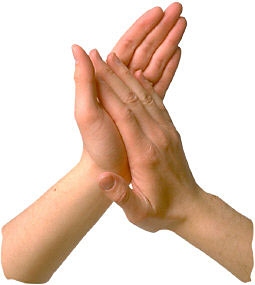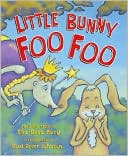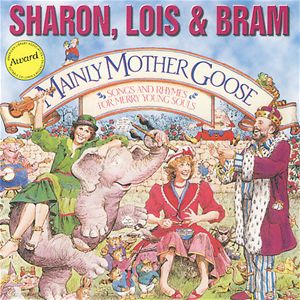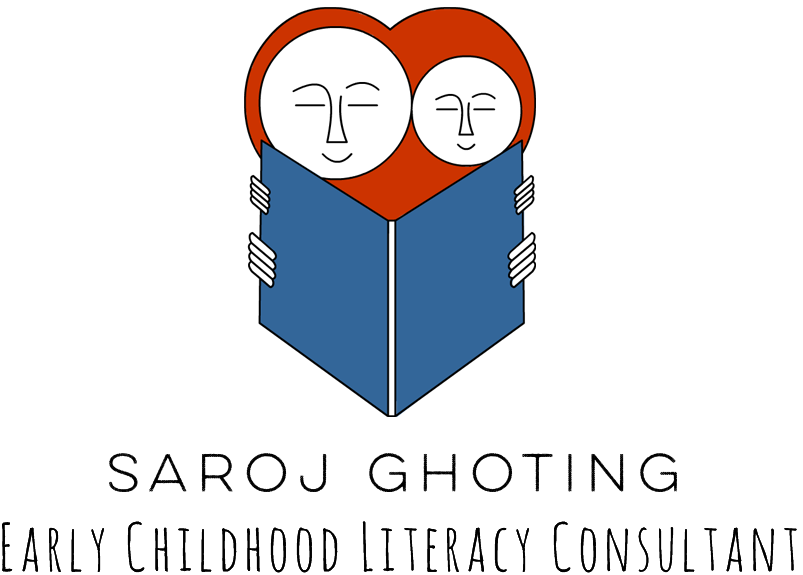 Early Literacy Aside--Explain: Songs are a great way to incorporate the early literacy skill, phonological awareness. Hearing and learning animal sounds helps your children hear the smaller sounds in words and singing emphasizes different syllables. This helps your children later to sound out words.
Submitted by Wendy B. Rancier, Roanoke County (VA) Public Library
Early Literacy Aside--Explain: Songs are a great way to incorporate the early literacy skill, phonological awareness. Hearing and learning animal sounds helps your children hear the smaller sounds in words and singing emphasizes different syllables. This helps your children later to sound out words.
Submitted by Wendy B. Rancier, Roanoke County (VA) Public Library
Old MacDonald Has a Farm Song
Early Literacy Aside--Explain: Researchers have found that one of the early literacy skills is phonological awareness. This is the ability to hear and play with the smaller sounds in words, like rhyming, playing with syllables or parts of words, and hearing beginning sounds of words. The beginning of this skills starts with children hearing and saying the sounds of animals.Sometime durng storytime sing "Old MacDonald" with the children, including several animals--cow, pig, sheep, chicken, duck, etc. Early Literacy Aside--Example: Making the sounds of animals contributes to phonological awareness and hearing sounds in words. Early Literacy Aside--Empower: Take advantage of opportunities to sing and say the sounds of animals with your children. It's fun and it also helps them hear the smaller sounds in words.
Submitted by Kimberly Burnette-Dean, Roanoke County (VA) Public Library
My Bonnie Lies Over the Ocean (or other song with repeated sounds)
For any song with repeated sounds. Example: My Bonnie Lies Over the OceanStart out with one sound, say /b/ (buh). Each time you hear a /b/ raise your hands over your head. Sing the song and raise your hands over your head each time you hear the sounds /b/. Then add another sound, say /m/ (mmmm). Each time you hear /m/, tap your knees. Sing the song again doing the motions for both sounds. Early Literacy Aside--Example: Putting motions to the sounds helps some children hear the sounds by emphasizing them. This helps develop phonological awareness, the ability to hear the smaller sounds in words which will later help them sound out words. Words to song: My bonnie lies over the ocean; my bonnie lies over the sea. My bonnie lies over the ocean; so bring back my bonnie to me. Bring back, oh bring back, oh bring back my bonnie to me, to me. Bring back, bring back, oh bring back my bonnie to me.
Rhyme Along with Me
[When you read a rhyming book or say a rhyme, you can pick two rhyming words and then sing this song to emphasize the rhyming words.]To the tune of Row Your Boat: Rhyme, rhyme, rhyme along, rhyme along with me Small and tall are rhyming words [or whatever two words you are rhyming] Now rhyme along with me. Early Literacy Aside--Example: Emphasizing words that rhyme helps children hear the rhyme. Being able to hear the smaller sounds in words helps develop their phonological awareness, a skill that will help them be able to sound out words when they later learn to read.
Pamela Martin-Diaz, Allen County (IN) Public Library
These Words Rhyme
After reading a book that rhymes, I read the book and then come back to a page that have two rhyming words. We talk about the words that rhyme and then sing a song [to the tune of "Skip to My Lou"]Small, tall [or whichever two words you have noted] these words rhyme Small, tall, these words rhyme, Small, tall, these words rhyme, Rhyme along with me. [You can also do this with a nursery rhyme, pointing out two rhyming words.] Early Literacy Aside--Example: Helping your children to recognize and say rhyming words helps them hear the smaller sounds in words, which develops phonological awarness. This is a skill that will later help them sound out words when they learn to read.
Idea from Pamela Martin-Diaz, Allen County (IN) Public Library
Row Your Boat
 During several consecutive storytimes you would choose a song to sing every time. For example, I chose Row Your Boat.In each storytime we sing the song correctly:
Row, row, row your boat; gently down the stream
Merrily, merrily, merrily, merrily; life is but a dream.
Then we sing the song again in a silly way, changing the first sound of each word:
Bow, bow, bow, bour boat, bently, bown be bream
Berrily, berrily, berrily, berrily; bife bis but ba bream.
Then we sing it again correctly.
Early Literacy Aside--Example: Singing nonsense songs like this help children hear the smaller sounds in words, in a fun way! Try it with different songs. Being able to change the first sound in a word is part of phonological awareness.
During several consecutive storytimes you would choose a song to sing every time. For example, I chose Row Your Boat.In each storytime we sing the song correctly:
Row, row, row your boat; gently down the stream
Merrily, merrily, merrily, merrily; life is but a dream.
Then we sing the song again in a silly way, changing the first sound of each word:
Bow, bow, bow, bour boat, bently, bown be bream
Berrily, berrily, berrily, berrily; bife bis but ba bream.
Then we sing it again correctly.
Early Literacy Aside--Example: Singing nonsense songs like this help children hear the smaller sounds in words, in a fun way! Try it with different songs. Being able to change the first sound in a word is part of phonological awareness.
The next week when we sing Row Your Boat changing the first sound of each word to a different sound. For example: Low, low, low lour loat; lently lown le leam Lerrily, lerrily, lerrily, lerrily; life lis lut la leam. Sometimes the children like to make their own changes and sing to the group.
Super Duper 1, 2, 3
 Super Duper 1, 2, 3
Can you say this word (or name) with me?
[volcano--or word/name of your choice]
Say it (You say it)
[Children/adults repeat the word with you]
Clap it (You clap it) (Say it again and clap it)
[Children/adults clap the word with you, one clap per syllable]
Snap it [snap fingers] (Say it again and snap it)
[Children/adults snap fingers together with you, one snap per syllable]
Tap it [tap with foot or tap knees] (Say it again and tap)
[Children/adults tap feet (or knees) with you, one tap per syllable]
Early Literacy Aside–Example: You can do this little song with any word! Dividing words into sound parts, into syllables, helps children hear the smaller sounds in words, one part of phonological awareness, the ability to hear the smaller sounds in words.
Super Duper 1, 2, 3
Can you say this word (or name) with me?
[volcano--or word/name of your choice]
Say it (You say it)
[Children/adults repeat the word with you]
Clap it (You clap it) (Say it again and clap it)
[Children/adults clap the word with you, one clap per syllable]
Snap it [snap fingers] (Say it again and snap it)
[Children/adults snap fingers together with you, one snap per syllable]
Tap it [tap with foot or tap knees] (Say it again and tap)
[Children/adults tap feet (or knees) with you, one tap per syllable]
Early Literacy Aside–Example: You can do this little song with any word! Dividing words into sound parts, into syllables, helps children hear the smaller sounds in words, one part of phonological awareness, the ability to hear the smaller sounds in words.
This Is the Way We Wash Our Face
Song: This Is the Way We Wash Our Face (Sung to the tune of Here We Go 'Round the Mulberry Bush)
Let's sing this song and tell a little story about how we take a bath.
"This is the way we wash our face (actions to words to all these)
shampoo our hair scrub our skin dry with a towel, etc. Early Literacy Aside--Example: This song helps us learn different vocabulary words about bathtime, like shampoo and scrub. I hope you will talk about this when you take a bath tonight. What other words can you come up with? Talking about interesting, fun words like this will help your children recognize words later on when they read them.
Submitted by Stacey Harwood, Henrico County (VA) Public Library, Twin Hickory Branch
Little Bunny Foo Foo: Told and Sung by the Good Fairy by Paul Johnson

Submitted by Jackie Anas, Portsmouth (VA) Public Library
Bear Went Over the Mountain--Rhyming Song
Song: The Bear Went Over the MountainThe bear went over the mountain, the bear went over the mountain The bear went over the mountain, to see what he could see. And what do you think he saw? And what do you think he saw? He saw a goat in a boat, he saw a goat in a boat. He saw a goat in a boat, That is what he saw.
Go through the song.
Early Litearcy Aside--Example: Rhyming is an important part of phonological awareness. It helps children break down words into smaller sounds and identify similar sounds in different words.This skill will help them when they sound out words to learn to read. Re-sing the song putting up different felt figures (skunk in a trunk) and allow the children to tell you what they see.
Early Literacy Aside--Empower: You can sing this song with any rhyming words. Work together with your child to create another verse. Don't be afraid to use nonsense words! Submitted by Erin Rogers, Henrico County (VA) Public Library--Gayton Branch
Storytime Handout: Animals All Around Us
Roll Your Hands (song) from Toddlers on Parade by Carol Hammett
Sing Roll Your Hands from Toddlers on Parade by Carol HammettWords: Roll, roll, roll your hands fast as fast can be. Do it now, let me see Do it now with me.
Tap, tap, tap your feet Shake, shake, shake your hips Roll, roll, roll your hands [Repeat one or two times all together. Clap together when done.]
Early Literacy Aside--Empower: This is a good rhyme to do as you are bathing or diapering your child. Use different parts of the body and words for different actions to help increase your child's vocabulary. Even though your baby does not understand everything you say, it is important for her to hear you say many words. The wider variety of words that your child hears, the larger her vocabulary will be, and the more easily they will later be able to read.
Five Little Ducks (song) from Rise and Shine by Raffi

Sing the song Five Little Ducks (on Rise and Shine by Raffi)
Early Literacy Aside--Example: There are many songs that have children say the sounds that animals make. Saying animal sounds is the beginning of being able to hear the smaller sounds in words, which later helps them sound out words when they learn to read!
Eensy Weensy Spider (song) from Mainly Mother Goose by Sharon Lois & Bram

Song Introduction: Our next song is Eensy Weensy Spider on this CD called Mainly Mother Goose by Sharon Lois and Bram. In this version, there is the eensy weensy spider and then next door there is a big, fat spider, and then a teensy weensy spider. Let's listen to the song first and then we'll act it out together.[Talk about a big fat spider and what it might look like, have them try to be a big fat spider. Do the same with a teensy weensy spider, using just your fingers. Have them try it themselves. You can use synonyms for big, fat like huge, enormous, and then for teensy such as tiny, tiny, minute.]
Early Literacy Aside--Example: Adults, by using the movements can help children understand what the words mean. Talking with your children about opposites and using more similar words--all these activities help to develop your children's vocabulary which will later help them understand what they read.
